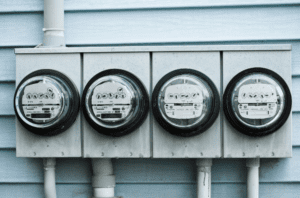November 7th is right around the corner and Daylight Saving Time will end until next March. Many of us feel the effects of the time change as our internal clocks reset. It is easy to see the personal reactions to a lack of sunlight, but how does the time change affect you and your business?
Why change the clocks?
The United States implemented daylight saving time during World War I as a conservation measure to support war efforts overseas. It was brought back again during World War II. After that, the federal program ended.
However, some states continued to change their clocks, while other states observed standard time all year long. This state by state approach caused much confusion. Congress established standard dates in 1966. These dates were changed again in 1986.
In 2005, the Energy Policy Act was signed with the mission “to ensure jobs for our future with secure, affordable, and reliable energy.” In addition to a number of tax breaks, the law also extended Daylight Saving Time by four weeks. So that is why we now “fall back” in November.
The underlying concept of Daylight Saving Time today is energy policy and saving money. It is common to think the adoption of Daylight Saving Time was tied to accommodating farmers. But in fact, the opposite is true. Farmers were the only organized lobby against Daylight Saving Time.
Rather, the Daylight Saving Time program is linked to energy policy and savings money by way of tax changes. The Energy Policy Act of 2005 was controversial at the time because no one could determine whether energy policy should favor fossil fuels, solar, hydro, or wind power. The resulting energy policy incentives were implemented with a patchwork of new rules and tax credits.
At the time, tax credits included fuel efficient hybrid vehicles, solar electric systems, solar water heaters, wind energy production, and geothermal heat pumps. All of these tax credits were incentives to support extending daylight hours with the goal of cutting energy consumption. The idea was if it is light out longer there would be less demand for electricity in the evening.
But that is not true and it may actually cost us more.
Does it save money?
Some studies indicate a slight change in demand in the evenings, but other studies have stated any savings are offset by more energy demand in the morning hours.
Many Americans don’t see the benefit of Daylight Saving Time and not every U.S. state observes it. There is no federal law requiring states to do so; only a law that requires states which do observe it to do so on the same dates and times.
In the early years of daylight savings time studies estimated a one percent decrease in electricity use. Yet, energy use has certainly changed since then with the wide availability of air conditioning and electronic devices. Currently, businesses may use less energy on lighting during Daylight Saving Time, but they offset that reduction with extra cooling expenses.
Research is inconclusive on whether seasonal clock changes save or cost us energy. However, research does point out a decrease in health and productivity. It is crucial during the weeks surrounding time changes to take care of our health and getting enough rest. Cardiologists warn time changes play a dangerous role in our body’s natural rhythm. It seems moving the clock forward or backward may alter the timing of when heart attacks occur in the week following a time change.
Data from the largest study of its kind in the U.S. reveals a 25 percent jump in the number of heart attacks occurring the Monday after we “spring forward”. But the study showed the opposite effect is also true. Researchers found a 21 percent drop in the number of heart attacks on the Tuesday after returning to standard time in the fall when we “gain” an hour back.
“We know from previous studies that a lack of sleep can trigger heart attacks, but we don’t have a good understanding of why people are so sensitive to changes in sleep-wake cycles. Our study suggests that sudden, even small changes in sleep could have detrimental effects.” – Amneet Sandhu, M.D., cardiology fellow, University of Colorado in Denver, and lead investigator of the study.
How can I save energy?
Although the goal of changing clocks is to reduce energy consumption, you likely will not see a dip in your energy bill. Modern systems require a substantial amount of power year round. But that doesn’t mean you can’t save energy in other ways.
To learn more about how you can save energy and money contact us today using the form below.
"*" indicates required fields







